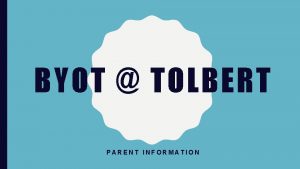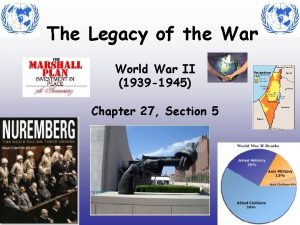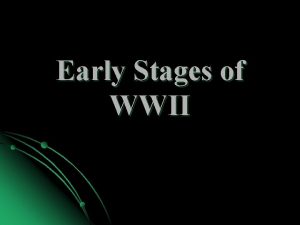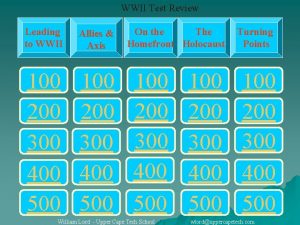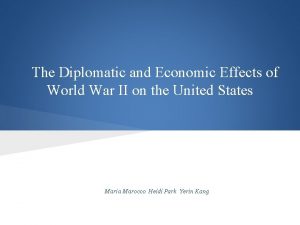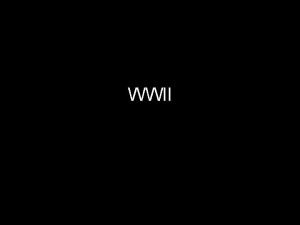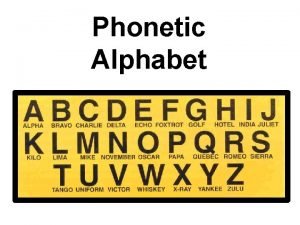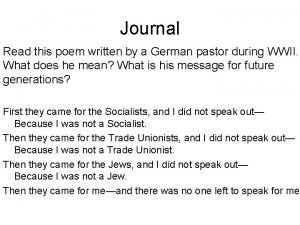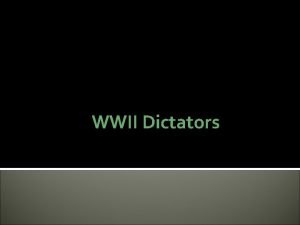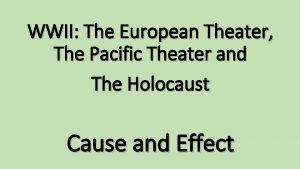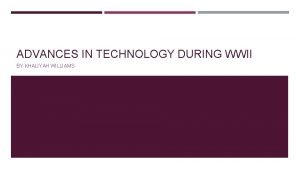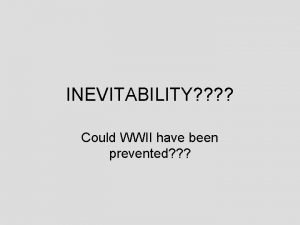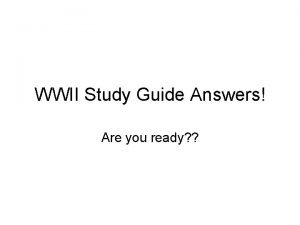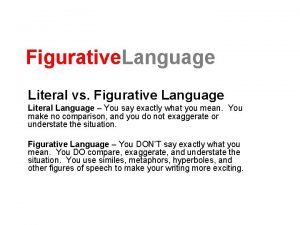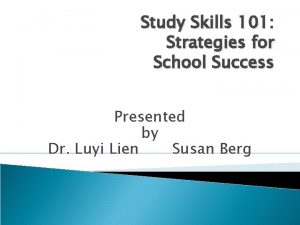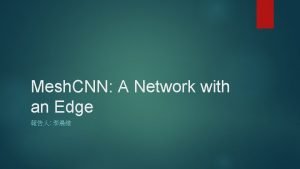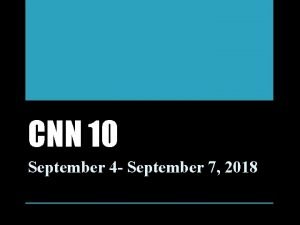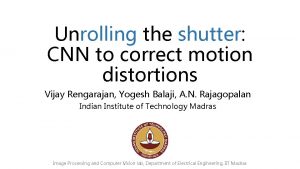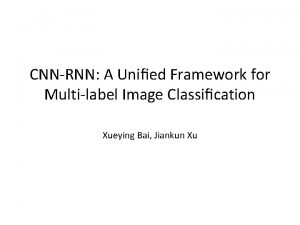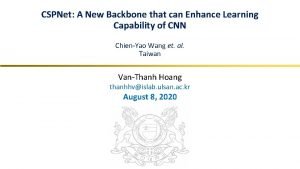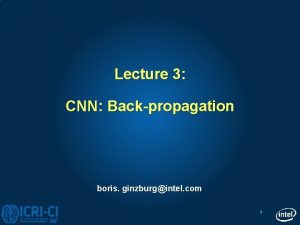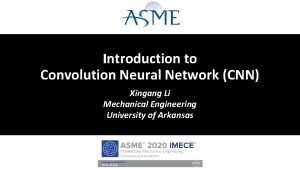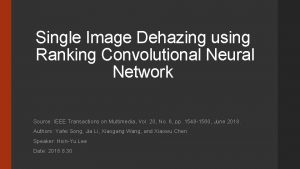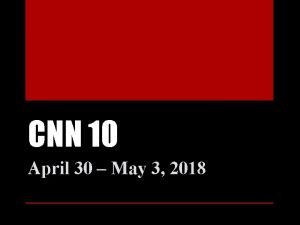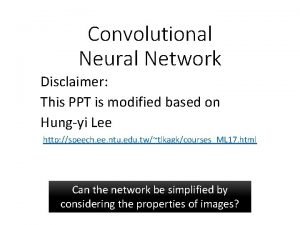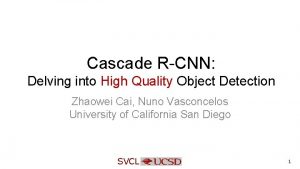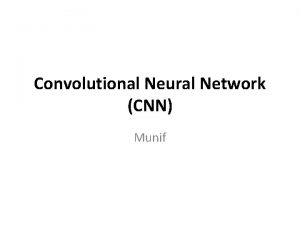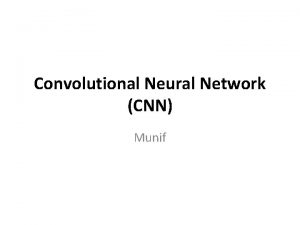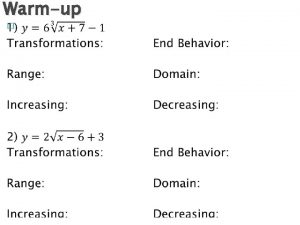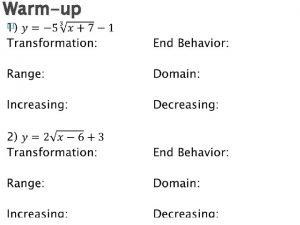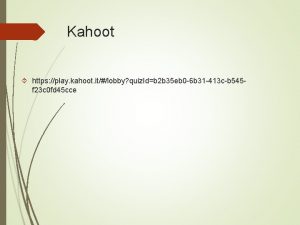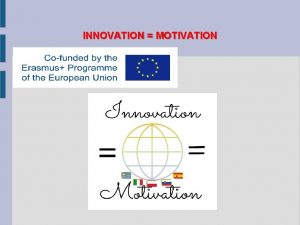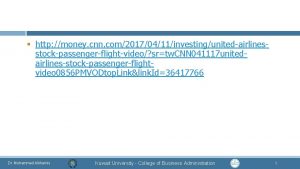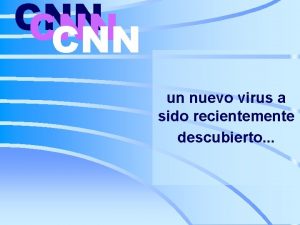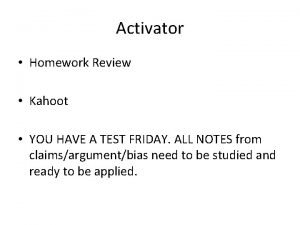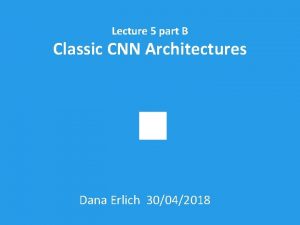WWII Part 1 Kahoot CE CNN Homework Lecture




































- Slides: 36

WWII Part 1 Kahoot CE CNN Homework Lecture


I. Storm-Cellar Isolationism • Spread of totalitarianism: • Individual is nothing; state is everything • Communist USSR led the way: • Ruthless Joseph Stalin emerged as dictator • In 1936 he began to purge USSR of all suspected dissidents: • Executed hundreds of thousands • Banished millions to remote Siberian forced-labor camps • Benito Mussolini, a Fascist, seized power in Italy in 1922

I. Storm-Cellar Isolationism (cont. ) • Adolf Hitler, a fanatic who plotted and harangued his way to control of Germany in 1933 • Most dangerous dictator because he combined tremendous power with impulsiveness • Secured control of Nazi party by making political capital of Treaty of Versailles and Germany's depression-spawned unemployment • Withdrew Germany from League of Nations in 1933 • Began secretly rearming • 1936: Hitler and Mussolini allied themselves in Rome-Berlin Axis


p 772

• International gangsterism also spread in Far East: • Imperial Japan, like Germany and Italy • Resented ungenerous Treaty of Versailles • Demanded additional space for its teeming millions, cooped-up in crowded island nation • Japanese navalists not to be denied: • Gave notice in 1934 of termination of 12 -year-old Washington Naval Treaty

• In 1935 in London, Japan torpedoed all hope of effective naval disarmament • When denied complete equality, they walked out of multi-power conference • And accelerated construction of giant battleships • 1935: Japan quit League of Nations • Five years later joined arms with Germany and Italy in Tripartite Pact

• Mussolini brutally attacked Ethiopia in 1935 • Brave defenders speedily crushed • League could have crushed Mussolini with oil embargo but refused to do so • Isolationism in America boosted by alarms from abroad: • America believed encircling sea gave her immunity • Continued to suffer disillusionment from participation in WWI • Nursed bitter memories about debtors

• Congress passed Johnson Debt Default Act (1934): • Prevented debt-dodging nations from borrowing further in United States • If attacked, delinquents could “stew in their own juices” • Mired down by Great Depression, Americans didn’t concern themselves with foreign dictators

• Americans feared being drawn into totalitarian aggression • Called for constitution amendment to forbid declaration of war by Congress—except in case of invasion—unless there was favorable popular referendum

Your Notes: • Post-WW I political and economic turmoil spawned the ominous spread of totalitarianism • Communism and Fascism spread throughout the world - The state was everything • International gangsterism spread in the Far East – Japan demanded additional space • Japan terminated long standing peace treaty and became an aggressor in the East • Americans embraced Isolationism

II. Congress Legislates Neutrality • Neutrality Acts of 1935, 1936, and 1937: • Stipulated that when the president proclaimed existence of foreign war • Certain restrictions automatically go into effect • No American could legally sail on a belligerent ship • Sell or transport munitions to a belligerent • Or make loans to a belligerent • Legislation abandoned traditional policy of freedom of seas

p 773

• Specifically tailored to keep United States out of conflict like World War I • Storm-cellar neutrality proved to be tragically shortsighted: • Prisoners of its own fears, U. S. A. failed to recognize it might have used its enormous power to shape international events • Instead, it remained at mercy of events controlled by dictators • Statutory neutrality of dubious morality • America would make no distinctions between brutal aggressors or innocent victims

• America actually helped encourage aggressors along their blood-spattered path of conquest • By declining to use industrial strength to • Aid democratic friends • And defeat totalitarian foes

Your Notes: • Congress made haste to legislate the nation out of war—Neutrality Acts of 1935 -1937 • U. S. Neutrality Acts were tailored to keep the nation out of a conflict like World War I • it actually overbalanced the scales in favor of the dictators

III. America Dooms Loyalist Spain • Spanish Civil War of 1936 -1939 • Painful lesson in folly of neutrality-by-legislation • General Francisco Franco: • Fascist aided by fellow conspirators Hitler and Mussolini • Franco sought to topple republican Loyalist regime • Loyalists got some assistance from Soviet Union • American Roman Catholics opposed Loyalist regime

• Abraham Lincoln Brigade: • 3, 000 headed to Spain to fight as volunteers • Washington continued official relations with Loyalist government • Existing neutrality legislation changed to apply arms embargo to both Loyalists and rebels • Roosevelt did nothing while Franco abundantly supplied by fellow dictators

• Democracies so determined to stay out of war they helped condemn fellow democracy to death • In so doing, they encouraged dictators toward further aggression • America declined to build armed forces to where it could deter aggressors • Allowed navy to decline in relative strength • When Roosevelt repeatedly called for preparedness, he was branded a warmonger

• Not till 1938 would Congress pass billion-dollar naval construction act • Calamitous story repeated: too little, too late

Your Notes: • Spanish rebels rose against the republican government in Madrid headed by General Francisco Franco—aided by Hitler and Mussolini, he overthrew Loyalist regime (assisted by Soviet Union) • U. S. Stayed neutral • Because of Neutrality Acts, our Spanish allies couldn’t purchase much need supplies • America declined to build up its armed forces to a point where it could deter the aggressors

IV. Appeasing Japan and Germany • 1937 Japanese militarists touched off explosion that led to all -out invasion of China • Roosevelt declined to invoke neutrality laws by refusing to call China incident an officially declared war • Did not want to cut off trickle of munitions on which Chinese depended • While Japanese could continue to buy war supplies in United States

1937 Japanese rape of Napping

• Quarantine Speech by Roosevelt in Chicago, autumn of 1937: • Called for “positive endeavors” to “quarantine” aggressors —presumably by economic embargoes • Isolationists feared a moral quarantine would lead to a shooting quarantine • Roosevelt retreated and sought less direct means to curb dictators

• America's isolationist mood intensified: • December 1937 Japanese bombed and sank American gunboat Panay: • Two killed and thirty wounded • Tokyo made necessary apologies and paid proper indemnity— Americans breathed sigh of relief • Hitler grew louder and bolder in Europe: • Openly flouted Treaty of Versailles by introducing compulsory military service in Germany • 1935 he sent troops into demilitarized German Rhineland

• March 1938, Hitler bloodlessly occupied German- speaking Austria • Then demanded German-inhabited Sudetenland of neighboring Czechoslovakia • Roosevelt's messages to both Hitler and Mussolini urged peaceful settlement • Conference held in Munich, Germany (Sept. 1938) • Western European democracies, badly unprepared for war, betrayed Czechoslovakia to Germany by shearing off Sudetenland

• Appeasement of dictators: • Symbolized by ugly word Munich • Surrender on installment plan • In March 1939, scarcely six months later: • Hitler erased rest of Czechoslovakia from map • Contrary to his solemn vows • Democratic world stunned

Your Notes: • In 1937, Japan’s all-out invasion of China—start of WW II • President Roosevelt delivered his “Quarantine Speech” in the autumn of 1937 in hopes to deter the aggressors • Japanese aviators sank an American gunboat, the Panay, in Chinese waters but Tokyo hastened to make the necessary apologies and paid reparations • In 1935 he flouted the Treaty of Versailles by introducing compulsory military service in Germany; the next year he brazenly marched into the demilitarized German Rhineland, occupied Austria and demanded Sudetenland of Czech. • Sept. 1938 Munich agreement was signed – Hitler promised not to take any more land • Appeasement fails in March of 1939 – Hitler took Czechoslovakia

V. Hitler's Belligerency and U. S. Neutrality • Stalin: • On August 23, 1939, astounded world by signing nonaggression treaty with German dictator • Notorious Hitler-Stalin pact: • Gave Hitler green light to make war with Poland Western democracies • Stalin plotted to turn German accomplice against Western democracies

• With signing of pact, World War II only hours away • Hitler demanded Poland return land she gained from Germany after WWI • Hitler attacked Poland on Sept. 1, 1939 • Britain and France, honoring commitments to Poland, declared war • At long last they perceived folly of continued appeasement but they were powerless to aid Poland • World War II now fully launched, and long truce of 1919 -1939 at end

p 775

• Roosevelt issued routine proclamation of neutrality • Americans overwhelmingly anti-Nazi and anti-Hitler • Fervently hoped democracies would win • Fondly believed forces of righteousness would triumph, as in 1918 • Determined to stay out; not going to be “suckers” again • Neutrality promptly became heated issue in U. S. • Britain and France urgently needed American planes and weapons • Neutrality Act of 1937 raised forbidding hand

• Neutrality Act of 1939: • European democracies might buy U. S. war materials but only on “cash-and-carry basis” • Would have to transport munitions in their own ships, after paying for them in cash • America would avoid loans, war debts, and torpedoing of American arms-carriers • Roosevelt authorized to proclaim danger zones into which U. S. merchant ships forbidden to enter

• Un-neutrality law hurt China, which was effectively blockaded by Imperial Japanese Navy • Clearly favored European democracies against dictators • United States not only improved its moral position but also helped its economic position • Overseas demand for war goods brought sharp upswing from recession of 1937 -1938 • Ultimately solved decade-long unemployment crisis

Your Notes: • August 23, 1939, a nonaggression treaty with the German dictator—the Hitler-Stalin pact meant that Hitler could now wage war on Poland the Western democracies, without fear of the Soviet Union • Nazi-Soviet pact, Hitler demanded from Poland a return of the areas wrested from Germany after WW I – led to Nazi invasion September 1, 1939 • The Neutrality Act of 1939 provided that European democracies might buy American war materials, but only on “cash-and-carry basis” • Overseas demand for war goods brought a sharp upswing from the recession of 1937 -1938 and ultimately solved the decade-long unemployment crisis
 Https://kahoot create
Https://kahoot create Causes of ww2
Causes of ww2 Define nye committee
Define nye committee Ww2 apush dbq
Ww2 apush dbq Wwii test review
Wwii test review Effects of second world war
Effects of second world war German map 1938
German map 1938 Wwii picture
Wwii picture Wwii show
Wwii show Phonetic alphabet letters
Phonetic alphabet letters Wwii
Wwii Wwii picture
Wwii picture 1500 dead in hawaii congress votes war
1500 dead in hawaii congress votes war Advances in technology during wwii
Advances in technology during wwii Could wwii have been prevented
Could wwii have been prevented Ww2 study guide answer key
Ww2 study guide answer key 01:640:244 lecture notes - lecture 15: plat, idah, farad
01:640:244 lecture notes - lecture 15: plat, idah, farad Homework oh homework i hate you you stink
Homework oh homework i hate you you stink Jack prelutsky homework oh homework
Jack prelutsky homework oh homework Oh homework oh homework poem
Oh homework oh homework poem Homework oh homework
Homework oh homework Alitteration definition
Alitteration definition Homework oh homework i hate you you stink
Homework oh homework i hate you you stink Meshcnn: a network with an edge
Meshcnn: a network with an edge Cnn 10 august 31
Cnn 10 august 31 Cnn
Cnn Cnn rnn
Cnn rnn A new backbone that can enhance learning capability of cnn
A new backbone that can enhance learning capability of cnn Pooling layer backpropagation
Pooling layer backpropagation Cnn
Cnn Cnn jay conroy
Cnn jay conroy Normalized cut loss for weakly-supervised cnn segmentation
Normalized cut loss for weakly-supervised cnn segmentation Convolutional neural network
Convolutional neural network Cnn 10 may 4
Cnn 10 may 4 Cnn 10 worksheet doc
Cnn 10 worksheet doc Convolutional neural networks ppt
Convolutional neural networks ppt Cascade r cnn
Cascade r cnn
